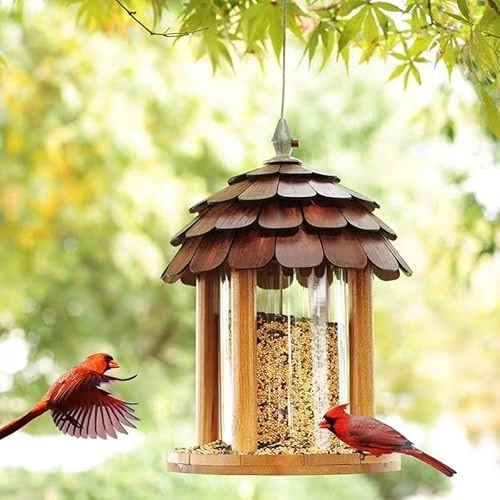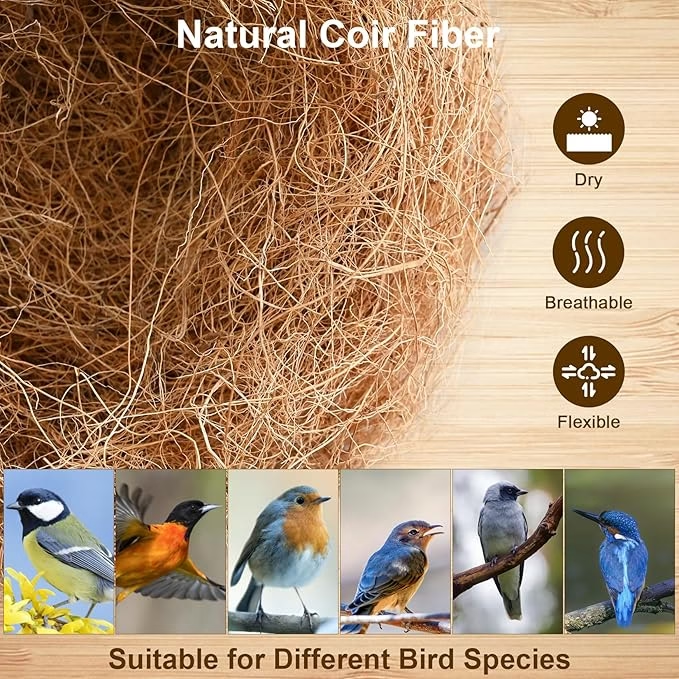Bird food is essential for the health and well-being of birds. It provides necessary nutrients and energy for their daily activities.
Birds require a diet that mimics their natural food sources. Seeds, fruits, and insects are common components of bird food. Different species have specific dietary needs, so it’s crucial to choose the right food. Quality bird food enhances their plumage, vitality, and longevity.
Fresh, clean water should always accompany their diet. Avoid processed foods and stick to natural options. Feeding birds can attract a variety of species to your garden. It’s a rewarding activity that supports local wildlife. By providing nutritious food, you help birds thrive in their natural habitats.
Importance Of Bird Nutrition
Birds need proper nutrition to stay healthy and active. A balanced diet helps birds grow strong and live longer. It’s important to provide the right food for your feathered friends.
Learn more about the nutrition your birds need
Role Of Balanced Diet
A balanced diet for birds includes seeds, fruits, vegetables, and insects. Each type of food provides different nutrients. Seeds are rich in fats and proteins. Fruits and vegetables give vitamins and minerals. Insects provide essential proteins and fats.
| Food Type | Nutrients Provided |
| Seeds | Fats and Proteins |
| Fruits | Vitamins |
| Vegetables | Minerals |
| Insects | Proteins and Fats |
Giving a variety of foods ensures birds get all necessary nutrients. Avoid feeding birds only one type of food. It can cause nutrient deficiencies.
Impact On Bird Health
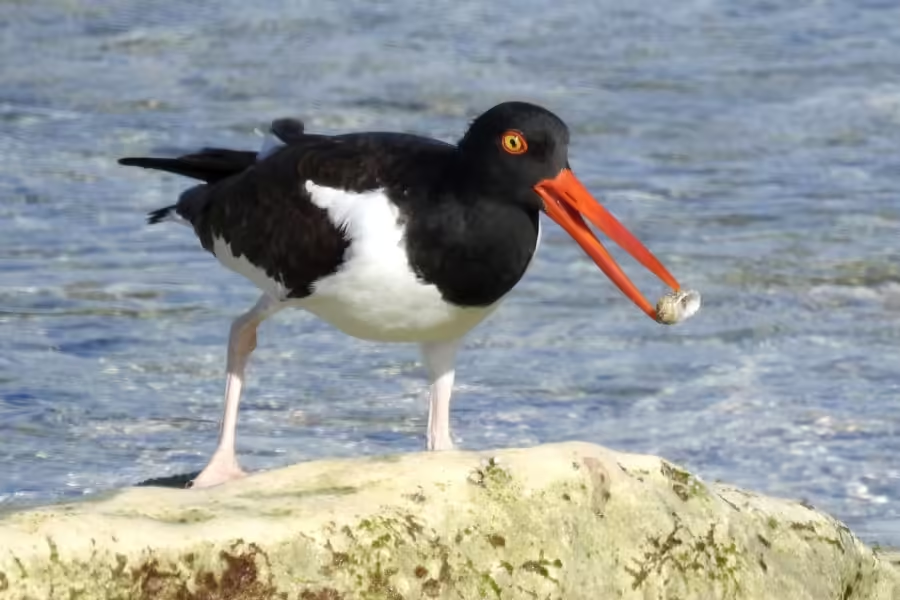
Good nutrition boosts a bird’s immune system. Well-fed birds are less likely to get sick. Proper diet improves feathers, making them shiny and strong.
- Boosts immune system
- Prevents diseases
- Improves feather quality
- Enhances energy levels
Poor nutrition leads to health problems. Birds can become weak and lethargic. They may lose feathers and have dull, brittle beaks.
Ensure your birds get a varied and balanced diet. Their health and happiness depend on it!
Types Of Bird Food
Feeding birds is a wonderful activity. Different types of bird food attract different birds. Knowing the right food helps keep birds healthy and happy.
Seeds
Seeds are the most common bird food. Birds love seeds for their taste and nutrition. Here are some popular types of seeds:
- Sunflower Seeds: High in fat. Loved by many birds.
- Niger Seeds: Tiny and oily. Perfect for finches.
- Millet: Small and white. Favored by ground-feeding birds.
| Seed Type | Bird Species |
| Sunflower | Cardinals, Jays |
| Niger | Finches, Siskins |
| Millet | Sparrows, Doves |
Pellets
Pellets are a balanced bird food option. They contain all essential nutrients. Pellets are suitable for many bird species:
- Parrots: Pellets ensure a balanced diet.
- Canaries: Pellets help with their energy needs.
- Budgies: Pellets keep them healthy and active.
| Pellet Type | Bird Species |
| Parrot Pellets | Parrots, Macaws |
| Canary Pellets | Canaries, Finches |
| Budgie Pellets | Budgies, Parakeets |
Fruits And Vegetables
Feeding birds the right fruits and vegetables can boost their health. These foods provide essential vitamins and minerals for their growth and wellbeing.
Safe Options
Not all fruits and vegetables are safe for birds. Here are some safe options you can offer:
- Apples – Remove seeds before feeding.
- Bananas – Peel and slice them.
- Carrots – Offer them raw or cooked.
- Blueberries – Serve them whole.
- Broccoli – Steam lightly for easier digestion.
Preparation Tips
Proper preparation ensures birds get the most from their food. Follow these preparation tips:
- Wash all fruits and vegetables thoroughly.
- Remove seeds and pits from fruits.
- Chop fruits and vegetables into small pieces.
- Offer a variety of colors and textures.
- Avoid adding salt, sugar, or spices.
Here is a simple table summarizing the safe fruits and vegetables and their preparation methods:
| Food | Preparation |
| Apples | Remove seeds, chop into pieces |
| Bananas | Peel, slice |
| Carrots | Chop or cook |
| Blueberries | Serve whole |
| Broccoli | Steam lightly |
Protein Sources
Birds need protein for energy and growth. Two great protein sources are insects and eggs. These foods help birds stay strong and healthy.
Insects
Insects are rich in protein. Birds love to eat them. Common insects include:
- Mealworms
- Crickets
- Grasshoppers
Insects also provide birds with essential nutrients. These include fats and vitamins. Many birds catch insects in the wild. You can also buy dried insects for pet birds.
Here is a table showing the protein content in common insects:
| Insect | Protein Content (per 100g) |
| Mealworms | 20g |
| Crickets | 21g |
| Grasshoppers | 23g |
Eggs
Eggs are another excellent protein source. Birds can eat boiled or scrambled eggs. Here are some benefits of eggs:
- Rich in protein
- Contain essential amino acids
- Easy to digest
Many bird species, such as parrots, enjoy eggs. You can serve eggs in small pieces. Ensure the eggs are fully cooked to avoid bacteria.
Adding eggs to your bird’s diet can boost their health. They also provide birds with energy. This makes eggs a valuable addition to bird food.
Supplements And Treats
Birds need a balanced diet to stay healthy and happy. Supplements and treats can enhance their nutrition. It’s important to know which supplements and treats are best.
Calcium Supplements
Birds need calcium for strong bones and eggshells. A lack of calcium can lead to health issues. Calcium supplements come in various forms:
- Cuttlebone: Easy to attach to the cage and birds love it.
- Mineral Blocks: These blocks offer calcium and other minerals.
- Calcium Powder: Sprinkle this powder on their food.
Always ensure your bird has access to fresh water while providing calcium supplements. Proper calcium intake helps prevent deficiencies.
Occasional Treats
Treats can be a fun part of your bird’s diet. They should not replace regular meals. Offer treats in moderation to avoid obesity.
Here are some safe treats for birds:
- Fresh Fruits: Apples, bananas, and berries are great options.
- Vegetables: Carrots, peas, and leafy greens are healthy choices.
- Seed Mixes: Special mixes designed for birds provide variety.
Avoid giving birds chocolate, caffeine, or avocados as they are toxic. Treats can be used to train and bond with your bird.
Remember, the key to a happy bird is a balanced diet with the right supplements and treats.
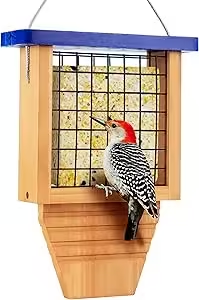
Bird Food Name
Selecting the right bird food can significantly impact the types of birds you attract to your garden or backyard. Different species of birds have varied dietary preferences, and choosing the appropriate food based on their needs is crucial. Below is a list of common bird food types and the species they attract:
1. Black Oil Sunflower Seeds
Black oil sunflower seeds are a favorite among many bird species, including cardinals, finches, chickadees, and woodpeckers. The seeds have thin shells that are easy for smaller birds to crack, and they are packed with high energy and nutrients. This makes them one of the most versatile and widely used bird foods.
2. Nyjer (Thistle) Seed
Nyjer seed is popular with smaller birds, particularly goldfinches, pine siskins, and redpolls. The tiny seeds are rich in oils, making them a valuable energy source. Due to their small size, Nyjer seeds are best served in a specialized feeder with small feeding ports to minimize waste.
3. Millet
White proso millet is a favorite among ground-feeding birds such as sparrows, doves, quails, and juncos. This small, round seed is high in carbohydrates and is often included in mixed birdseed blends. Red millet can also attract similar species, although it’s not as preferred as white millet.
4. Cracked Corn
Cracked corn appeals to larger ground-feeding birds like pigeons, doves, quails, and jays. It’s also a favorite among waterfowl and turkeys. This food is best offered on platform feeders or directly on the ground. However, keep in mind that cracked corn can also attract less desirable wildlife such as squirrels or raccoons.
5. Peanuts
Whole or shelled peanuts are loved by birds like jays, woodpeckers, chickadees, and nuthatches. They are a great source of protein and fat. Unsalted, dry-roasted peanuts are the best option to keep birds healthy. You can serve them in mesh feeders or scatter them on the ground for easy access.
6. Safflower Seeds
Safflower seeds are an excellent alternative if you’re looking to attract cardinals, titmice, chickadees, and grosbeaks, while discouraging squirrels and house sparrows, as they typically dislike this seed. Safflower seeds have a thick shell that some birds find easy to crack, and they are high in fat and protein.
7. Mealworms
Mealworms are a protein-packed treat that attracts insectivorous birds such as bluebirds, wrens, robins, and thrushes. You can serve live or dried mealworms in a tray or dish feeder. This bird food is especially popular during breeding season when birds need extra protein to feed their young.
8. Suet
Suet, made from beef fat, is a high-energy food that attracts woodpeckers, nuthatches, chickadees, and wrens. It’s especially useful during the colder months when birds need extra fat to stay warm. Suet is often combined with seeds, nuts, or fruit and can be served in wire cages or suet feeders.
9. Fruit
Fresh fruits such as apples, oranges, berries, and grapes attract species like orioles, robins, and tanagers. Fruit is a great option during migration and breeding seasons when birds need extra energy. Offering sliced or halved fruit on a platform feeder will bring in a variety of fruit-eating species.
Choosing the Right Bird Food
Understanding the dietary preferences of different bird species helps you select the right food to attract your desired birds. By offering a mix of seeds, nuts, fruits, and suet, you can create a diverse feeding environment that caters to both seed-eaters and insectivores. Additionally, selecting the right feeder to match the food type ensures minimal waste and keeps your feeding area clean.
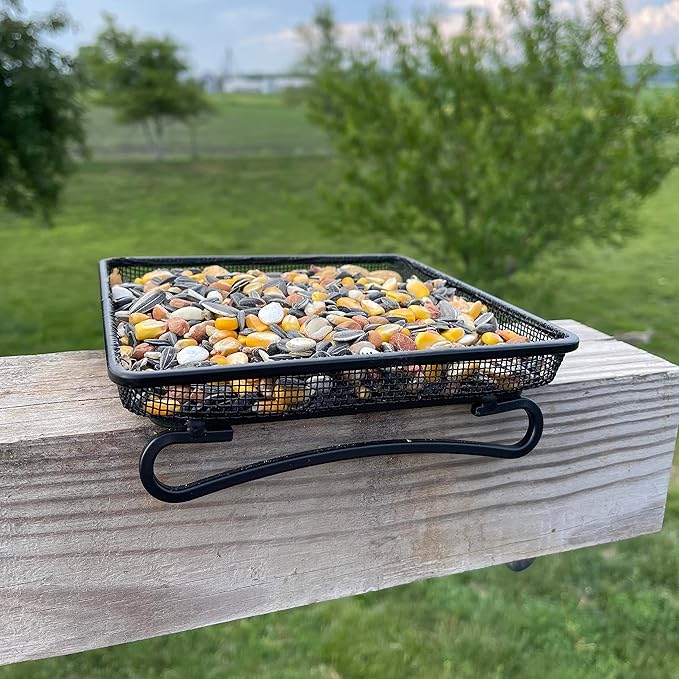
Bird Food Baby
Feeding baby birds, whether in the wild or in your care, requires special attention to their nutritional needs. Baby birds, also known as nestlings or fledglings, are entirely dependent on their parents (or caregivers) for food. The type of food varies depending on the species, as different birds have different dietary requirements at this critical stage of growth. Here’s a look at what baby birds typically eat and how you can help if necessary.
1. Insect-Eating Birds
Most baby birds, even those of seed-eating species, rely heavily on insects for the first few weeks of their lives. Insects provide the protein necessary for rapid growth and development. Baby birds such as robins, sparrows, and warblers are usually fed a diet of worms, caterpillars, and other soft-bodied insects by their parents.
If you’re caring for an orphaned baby bird, providing mealworms, crickets, or moistened dog or cat kibble can serve as a protein-rich substitute. These should be fed frequently, as baby birds have high metabolic rates and need to eat every 15-20 minutes during the day.
2. Seed-Eating Birds
Seed-eating birds such as finches and doves will eventually transition their babies to seeds, but in the early days, they also rely on regurgitated insects or softened seeds. Parents will often partially digest seeds before feeding them to their young to ensure they can easily swallow and digest them.
For nestlings or fledglings that need assistance, you can soak seeds or grains in water to soften them before offering them. You can also blend seeds with small amounts of hard-boiled eggs to provide extra protein.
3. Fruit-Eating Birds
Birds like orioles, tanagers, and thrushes incorporate fruit into their babies’ diet as they grow. Parents typically feed them soft fruits such as berries, grapes, and apples, which are rich in sugars and nutrients.
If you’re helping care for a baby bird from a fruit-eating species, offer small bits of mashed, ripe fruit. Avoid citrus fruits as they may be too acidic for baby birds. Additionally, make sure the fruit is soft enough to swallow easily.
4. Water for Baby Birds
Baby birds typically receive all the water they need from their food, especially when they’re being fed soft insects or juicy fruits. It’s essential not to attempt to give baby birds water directly, as it can lead to choking or drowning. In nature, parents do not offer water separately, so ensure their food contains sufficient moisture.
How to Feed Baby Birds
If you come across an orphaned or abandoned baby bird, it’s important to mimic the feeding habits of parent birds as closely as possible. Use a small pair of tweezers or a syringe without a needle to place food gently into the bird’s mouth. Feed small amounts frequently throughout the day, mimicking the high feeding frequency of parent birds. However, it’s always best to contact a wildlife rehabilitator for guidance, as caring for baby birds requires specific knowledge and care.
What to Avoid
Certain foods are harmful to baby birds and should be avoided. These include:
- Bread: It offers little nutritional value and can fill the bird’s stomach without providing essential nutrients.
- Milk: Birds are lactose-intolerant and cannot digest dairy products.
- Unsoaked Seeds: Hard seeds are difficult for baby birds to swallow and can cause choking.
- Raw Meat: This can introduce harmful bacteria.
Conclusion
Feeding baby birds is a delicate process that should only be attempted when necessary. In most cases, it’s best to leave baby birds in the care of their parents or seek professional help if you believe a bird has been orphaned. Ensuring the right food is offered at the right stages of development is essential for the bird’s health and survival.

Homemade Bird Food
Creating homemade bird food can be a fun and rewarding activity. It allows you to cater to the specific dietary needs of local birds. Plus, it’s a great way to attract a variety of bird species to your garden.
Recipes
Here are some simple and nutritious recipes for homemade bird food:
| Recipe | Ingredients | Instructions |
| Seed Mix | Sunflower seedsMilletCracked cornPeanuts | Mix all ingredients in a bowl.Store in an airtight container. |
| Fruit and Nut Mix | Dried cranberriesRaisinsChopped almondsPumpkin seeds | Combine all ingredients in a bowl.Store in a cool, dry place. |
Benefits
Feeding birds with homemade food has numerous benefits:
- Healthier Diet: Homemade food can be more nutritious.
- Cost-Effective: Save money by using household ingredients.
- Eco-Friendly: Reduce packaging waste from store-bought food.
By making your own bird food, you can ensure it is free from harmful additives. This helps keep local bird populations healthy and thriving.
Feeding Tips
Feeding your birds the right food is vital for their health. Follow these tips to ensure your feathered friends stay happy and healthy.
Feeding Schedule
Birds thrive on a consistent feeding schedule. Feed them at the same times every day. This routine helps them feel secure and reduces stress.
- Morning: Fresh food and water
- Afternoon: Small snack
- Evening: Main meal
Always ensure fresh food and water are available. Avoid letting food sit too long, as it can spoil quickly.
Portion Control
Overfeeding can lead to obesity and health problems. Use proper portion sizes to keep your birds healthy.
| Bird Type | Daily Portion |
| Small Birds (e.g., Finches) | 1-2 teaspoons |
| Medium Birds (e.g., Parakeets) | 2-3 tablespoons |
| Large Birds (e.g., Parrots) | 1/4 to 1/2 cup |
Adjust portions based on your bird’s activity level. Keep an eye on their weight and adjust as needed.
Common Feeding Mistakes
Feeding birds can be a joyful and rewarding activity. It’s important to avoid common feeding mistakes. These mistakes can harm your feathered friends. Let’s explore these mistakes to keep your birds healthy.
Overfeeding
Overfeeding birds is a common mistake. Birds need a balanced diet to stay healthy. Too much food can cause obesity and other health problems.
- Obesity: Overfeeding can lead to weight gain in birds.
- Wasted Food: Excess food can attract pests like rats and squirrels.
- Nutritional Imbalance: Birds need a variety of foods for proper nutrition.
Feed your birds small amounts. Ensure a variety of seeds, nuts, and fruits. Monitor their eating habits regularly.
Toxic Foods
Some foods are toxic to birds. These foods can cause serious health issues. It’s crucial to know which foods to avoid.
| Food | Reason |
| Chocolate | Contains theobromine, toxic to birds. |
| Avocado | Contains persin, harmful to birds. |
| Onion and Garlic | Can cause anemia and digestive issues. |
| Alcohol | Toxic and can be fatal. |
Avoid giving birds these foods. Stick to bird-safe options like seeds, fruits, and nuts. Always research new foods before feeding them to your birds.
Frequently Asked Questions
Birds love seeds, fruits, and insects. Sunflower seeds, mealworms, and berries are popular choices. Provide variety for balanced nutrition.
Feed birds daily, especially in winter. Consistent feeding helps them rely on your garden as a food source.
Some human foods are safe for birds, like fruits and grains. Avoid processed foods, sugar, and salt.
Colorful birds are attracted to fruits and seeds. Offer oranges, grapes, and sunflower seeds to attract them.
Bird food and feeders should be selected based on the species and type of bird. Click here if you want to know more about this.
If you have further questions comment Please.
Conclusion
Choosing the right bird food ensures your feathered friends stay healthy and happy. Always opt for high-quality, nutritious options. Remember to consider the specific dietary needs of different bird species. By doing so, you create a thriving environment for various birds in your backyard.
Happy bird feeding!
